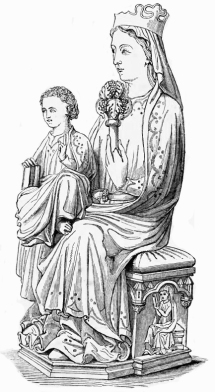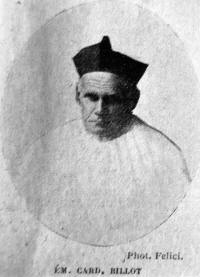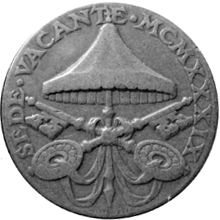Deep Scars of Thunder is the third book in R.A. Lafferty’s Tetralogy In A Green Tree. Only the first book and some chapters of the second have been published. The rest might not see print for decades. One reviewer of the first book in the series writes :
“My Heart Leaps Up” is a semi-autobiographical work by the great Catholic novelist R.A. Lafferty. Set between 1920 and 1928, it deals with a group of Catholic schoolchildren in Tulsa, Oklahoma—though, in true Lafferty fashion, these children also represent the eternality of the Church. Unlike most of Lafferty’s work (which fits uncomfortably within the science fiction and fantasy genres), this is a work of mainstream fiction. There are strong fantasy elements, but they fall more under the heading of “magic realism” or tall tale than under fantasy proper. As such, newcomers might find “My Heart Leaps Up” to be more accessible than more outlandish novels like “Fourth Mansions” or “Arrive at Easterwine.” (Though, truth be told, the book is only as “easy” as you make it; scratch the surface, and it is as complex, disturbing, and finely-tuned as anything in the man’s oeuvre.) In fact, I can imagine that with the proper distribution and promotion, this novel could have helped to establish Lafferty as a major American novelist. Frustratingly, “My Heart Leaps Up” is only the first installment of a much longer series. The other volumes—“Grasshoppers and Wild Honey,” “Deep Scars of Thunder,” and “Incidents of Travel in Flatland”—were written but have yet to be published. Hopefully we will see those books someday. But incomplete or not, “My Heart Leaps Up” is still an impressive work by one of America’s very greatest, though least known, writers. “My Heart Leaps Up” was originally published in the 1980’s as a series of five chapbooks, each containing two chapters apiece. The first two chapters of “Grasshoppers and Wild Honey” were also published in the early 1990’s. You should still be able to obtain these books at their original prices, so beware any used booksellers offering them for exorbitant amounts.
* * *
That great theologian, Perpetua Linneen O’Donovan, saw the new situation almost at once, and she cast it in a series of parables .
“There was once a large and happy family, each of whose members understood all the others perfectly,” one of her parables went. “There had never been such perfect understanding in the world since Pentecost Morning. In fact it was still Pentecost Morning going on in clarity and grace from one end of the world to the other. Chinese people and Tagalogs, Goanese and Nigerians, people from Belgium and Bolivia, from Austria and Australia, from Lithuania and Lebanon, from Greece and Germany, from France and Frisia, from Moravia and Mauritania, from Spain and Somiland, from Mexico and Madagascar, all understood each other perfectly, especially when they met for the wonderful morning supper that was the central act of the world.
“‘How can this be?’ the enemy asked. ‘The words are in a tongue called dead, and the running translation of them is hardly glanced at now and then. They are understanding each other outside of the bare language. Maybe there is a way to queer that understanding.’ The enemy thereupon launched a great campaign so that each should say the morning supper in his own tongue: and in the most effete and trivialized words possible. And the campaign was a success, and the people jabbered in their six hundred and sixty-six different tongues. They all understood the words they jabbered, inasmuch as words stripped down and then stripped down again can have much understanding left in them. But they didn’t understand the other six hundred and sixty-five jabbers, and they didn’t understand anything that went deeper than the jabberings. So they lost it all, by being overly concerned with the tongues that were not tongues-of-fire. They lost it completely. They wrote the end to Pentecost and to Pentecostal understanding.”
“It is a good parable, Perpetua,” Monica Sheen said. “’We understand it in all the intricate depth of it, and the words you use do not matter much.” Perpetua had been speaking about the new movement and attack on the Church, from outside and from on the fringes of the Church, to have the Mass said in the vernacular tongues. And she understood correctly the intent behind that movement.
“There is a further parable,” Perpetua said. “There was a man who enjoyed good health, exuberant health, wonderful health, spectacular health, he and all his household. But one day a Medical Hit Team came and nailed a quarantine sign on his door. The sign declared all that household sick unto death. ‘You must have the wrong address,’ the householder said. ‘This is our house and the address of it is Number One, Central Avenue. And there is nobody here suffering such sickness as to call for quarantine or other drastic measures.’ ‘We really don’t pay much attention,’ the leader of the Medical Hit Team said. ‘We figure that everybody is sick, and when we are on a ‘hit’ there is just no way we can miss. Ah, boys, lets just give him a couple of shots to cure that stubbornness in him. And let’s do the same to all his family. ‘I am not sick, I am not sick,’ the man still insisted. ‘OOOF! What poison did you shoot me with? Rather I should say that I was not sick. I am now.’ ‘Ah fine,’ said the hit chief. ‘Now let’s just lay him down and start taking things out of him. He’s got dogmaitis, and the false health that goes with it. Let’s start pitching those things out of him. The hit team worked that man over pretty thoroughly then. And in a very little while they had him down where he was on the balance between life and death. ‘How do you feel now?’ the hitsters asked the householder. ‘Not very good,’ the man said, ‘but if you’d just put back in me a few of those things you took out, maybe—’ ‘What we have taken out is taken out forever,’ the Captain of the Hit said.
“But it is to ourselves that the Hit Teams are coming, to take drastic liberties with our health, when our health itself is at its most exuberant and its most nearly perfect.”
“It is a good parable, Perpetua,” James Tyrone said. “Councils have always been called when the Church was very sick. The life of the Church has several times been saved by them, but always at great expense. Something vital is always given up to save the life, but in most cases it is the question whether the Council or the sickness was the worse. But now, when the Church is in such exuberant health, why should the dangerous expedient of a Council be visited upon her? There is a great misunderstanding somewhere. Or a great subversion. Who are these giggling creatures whetting axes and hatchets so noisily in the wings?”
They were all talking about the Council which the New Pope had said that he intended to call. They were all alarmed, because he had used all the code words and trick phrases of all the trick enemies of the Church in making the announcement.
“But the Church Herself cannot fail, nor can the Pope, nor can the Holy Ghost,” Beatrice Belle pointed out.
“But all three come very near to failure, again and again,” Perpetua insisted. “They put themselves to the test, and they put us to the test. Then let us respond in good faith to an attack that is in the form of riddles, all of them on the face of them in bad faith. This will come out all right finally, as it must. But we are obliged to take such steps as we can, to see that it does come out all right. We are among the effectors.”
Thereupon some of them formed the ‘Let-It-Alone-Dammit-Society’. They would try to prevent the dismantlers from dismantling the Church and the World.

















Lafferty really didn’t like Vatican II, I take it.